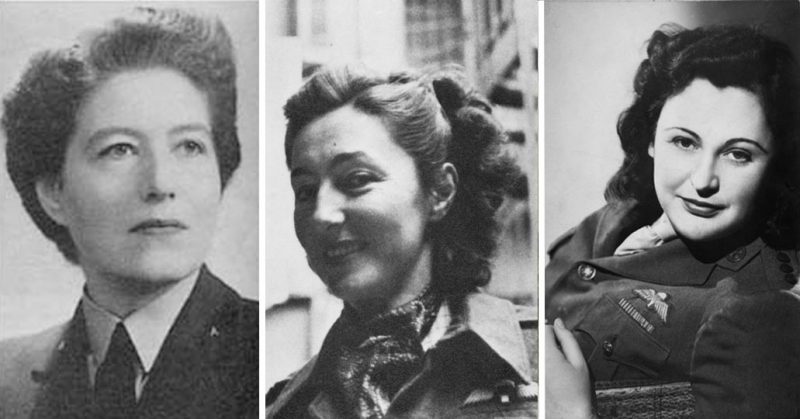During World War II, the Special Operations Executive (SOE) was a thrown-together conglomeration of amateurs and spies that President Eisenhower credited with turning the tide of the war in favor of the Allies.
There were quite a few women who worked for the SOE. They were trained to handle guns, explosives, secret codes, and harsh interrogation. They arranged for ammunition and supplies to be dropped where needed. In some cases, they were in charge of thousands of men.
Here are the stories of some of them.
Vera Atkins was a young woman from Romania who was working in Bucharest when she met William Stephenson from Canada. He would eventually be known as agent “Intrepid,” and become the inspiration for James Bond. When they met, he was supplying intelligence to Britain before the war.
Stephenson introduced Atkins to the German ambassador to Romania in order to get information from him. The ploy worked and Atkins went to work in Stephenson’s steel business as a translator while gathering intelligence for the British.
Atkins was Jewish (her real name was Rosenthal) which she kept hidden from the Nazi authorities she worked with. Before the war, she provided information to Churchill while his government still believed that Germany did not intend to invade other countries.
With Churchill’s rise to power to guide Britain through the war, Atkins was promoted to a high-ranking position in the SOE. Hoping to secure the support of the United States, Churchill made sure to have Atkins meet with William Donovan, the US head of intelligence and the future father of the CIA, when he came to Europe to see the situation for himself.
Atkins showed Donovan the amateurs designing their own guns and fake horse manure to conceal explosives and working tirelessly to crack German codes. Donovan was so impressed with the SOE that he reported on their activities to Roosevelt.
Krystyna Skarbek was born into the Polish aristocracy. Her father taught her to ride horses and shoot a gun. She also had a talent for charming men. She worked throughout Europe on secret missions, breaking the hearts of men along the way.
In 1939, Germany invaded Poland quickly followed by the Russians. Skarbek was overseas. She tried to enlist but her plan was frustrated by the fact that she was a woman. She approached the British with a plan to ski into Poland, delivering British propaganda in order to improve the morale of the resistance.
She skied over the Tatras mountains from Hungary during the coldest winter in living memory in order to get into Poland.
Working behind enemy lines was doubly dangerous for Skarbek because her mother was Jewish.
She became vital to the resistance as she smuggled intelligence from Poland to the Allies. She once evaded capture by biting her tongue bloody and faking tuberculosis. She saved a lover, Francis Cammaerts, by hanging around the prison he was being held in, singing their favorite song. When she heard him sing it back, she knew where he was in the prison. She then convinced the guards that the Allies had landed and would be more inclined to be merciful if the guards had let the prisoners free.
After the war, Skarbek was killed by an obsessed admirer.
Nancy Wake was born in New Zealand and raised in Australia. She married a wealthy man in Marseille and lived a life of luxury, taking her breakfast of caviar and toast in a large bath.
But when the war came, Wake didn’t back down. She told her husband she would be an ambulance driver. Since France had very few ambulances, she made her husband buy one for her, Vanity Fair reported.
She spread her wealth around and started an underground railroad from her home in Marseille. She helped hundreds of Allied servicemen who had been shot down behind enemy lines get back to England. Before long, the Gestapo has a 5-million-franc reward for “the White Mouse,” their most wanted fugitive.
Skarbek was eventually arrested. She escaped to England and joined the SOE before parachuting back into France. She worked with the Maquis, the guerrillas fighting in some of the roughest terrains in France. Her experience won the respect of the Maquis leaders, and she became the administrative leader of 7,000 fighters. She coordinated secret airdrops of supplies and ammunition, participated in raids and killed Germans with her bare hands. One of the Maquis said that she was the most feminine woman they knew until the fighting started, then she became “like five men.”
When the war ended, Skarbek returned to her home in Marseille. It had been commandeered by female Gestapo agents who stole all her furniture. Her husband, who had been arrested with her, was tortured to death by the Gestapo, trying to get information to find her. She retired to London and lived there until her death at 98 years old.
